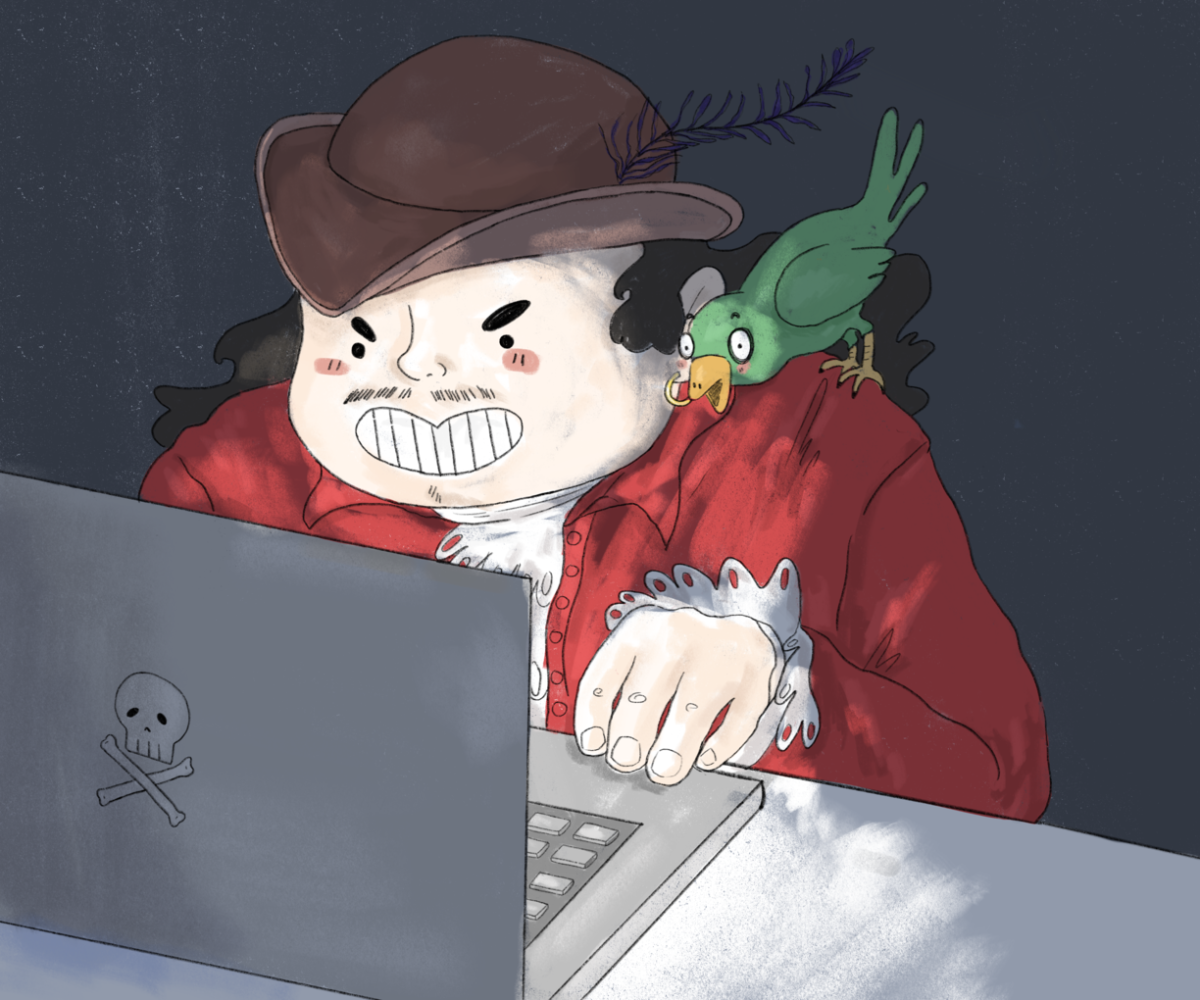University staff from the Office of Information Technology said online piracy reports spiked in the last year, but it doesn’t mean the pandemic moving students online in 2020 made everyone an expert on illegally downloading content.
According to Sarah Ward, a security incident response analyst at OIT, the University received 2,278 copyright violation reports between 2018 and 2021. Last year was the largest amount of reports received, with OIT receiving 789 reports; by contrast, OIT only dealt with 388 reports in 2020 and 356 reports in 2018, with 2019 also having a spike of 745 reports.
Ward, however, said it is too soon to say if the COVID-19 pandemic caused an increase in piracy on campus because in 2020, many students went home and multiple reports can be directed at a singular user.
“In [2019], we had one violator who had generated a little bit over 200 reports, so that kinda tells you how many reports can actually be generated for one event or one user who’s, let’s say, maybe downloading multiple things illegally like music or something of that nature,” Ward said. “In 2020, you saw a drop back down to 388, and a lot of students weren’t on campus during that time.”
According to OIT’s Higher Education Opportunity Act compliance plan, the University has a DMCA email address to receive copyright infringement complaints. Once a complaint is sent, a ticket is automatically generated by OIT’s incident management system for staff to begin investigating.
Ward said it is not always possible to identify the person involved in the copyright infringement complaint if OIT is not able to verify or trace back certain information about the infringer or if the copyright violation complaint does not match up with the network traffic logs OIT has.
“In the cases that we are able to trace it back to a user, which does happen, we then follow the appropriate process either going through employee relations for our employees or through Student Conduct for our students,” Ward said.
According to Ward, OIT has identified and reported 49 cases since 2018. Bradley Davis, associate director at the Office of Student Conduct, said through email that Student Conduct has responded to 36 cases involving copyright allegations or complaints since 2017.
When dealing with students who’ve committed copyright violations on University networks, Davis said Student Conduct goes for an educational approach. According to Davis, Student Conduct aims to not just break down to students any disciplinary action from the University or potential sanctions from the copyright owner, but teach students of the downsides of piracy. Davis said he believes there are some students who are not aware of its harmfulness.
“Most of the time, [students] are forthcoming in saying ‘Yes, you know, I downloaded this, my friend showed me how to download a video game, I was playing it and I stopped,’” Davis said. “And so our approach is to say, ‘Okay, you can’t engage in this type of behavior on the University’s network, this is where legal ramifications could come in, and if this particular company wants to pursue that, you know, we would need you to either remove the content from your devices, and then to not engage in this type of behavior on the network.’”
According to Davis, both repeated offenders and actual litigation from companies filing copyright infringement notices are rare — since his time at NC State, Davis said he hasn’t heard of any student facing financial litigation from a copyright infringement case — but that does not mean that it does not happen. In last year’s illegal peer-to-peer file sharing annual notice, Chancellor Randy Woodson mentioned an incident where a former Boston University graduate student was required to pay $675,000 for illegally downloading and sharing 30 music files online.
“I’ve done conduct work for a number of years even before I got here to NC State, and I had to deal with this similar issue and other places I’ve been at,” Davis said. “I can’t think of a time where these companies actually did sue a student. They could have, and we may not be privy to it, but I would say it’s pretty much a rarity.”
For more information on the University’s policies against copyright infringement, visit OIT’s FAQs for peer-to-peer transfers and copyright protections. If a student is facing legal or financial consequences due to pirating content, Davis said Legal Services can offer legal assistance and advice.













